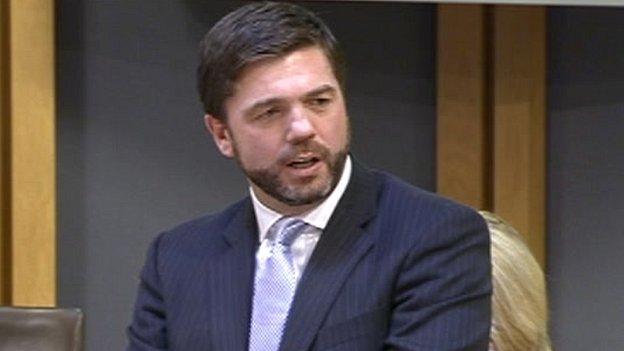Draft Wales Bill: First minister warns of conflict risk
- Published
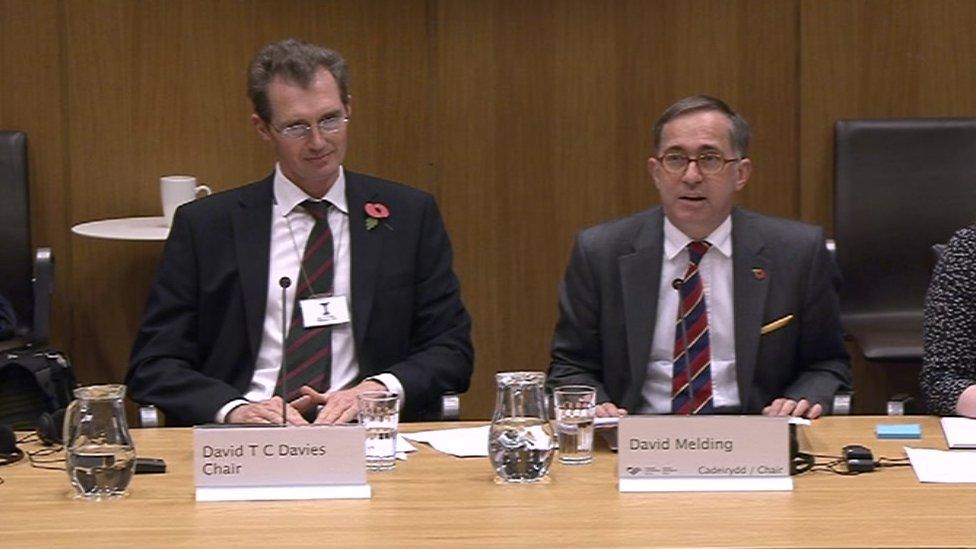
MP David Davies and AM David Melding lead a rare joint session of Westminster and assembly committees
A new system setting out which powers are controlled by Westminster and the Welsh Assembly could mean every future piece of legislation ending up in the Supreme Court, said Carwyn Jones.
The first minister was giving evidence to MPs on the Welsh Affairs committee, who came to Cardiff to hear evidence about plans for further devolution.
The Conservatives and Plaid Cymru told MPs more AMs would improve scrutiny.
The Welsh Liberal Democrats agreed but said there should be fewer Welsh MPs.
Westminster's Welsh Affairs committee and the assembly's constitutional and legislative affairs committee held separate and joint meetings on Monday examining new powers on offer to Wales.
More say over energy, transport and assembly elections are among the proposals in the draft Wales Bill, external published in October.
The first minister raised concerns about consent of Westminster ministers needed on Welsh laws.
He said: "The difficulty is that these are new and unnecessary restrictions on the way the assembly exercises its powers on behalf of the people of Wales who elect the assembly that could only cause more conflict.
"That runs the risk of every single bill potentially ending up in the Supreme Court. That is clearly not what anybody wants and needs to be avoided."
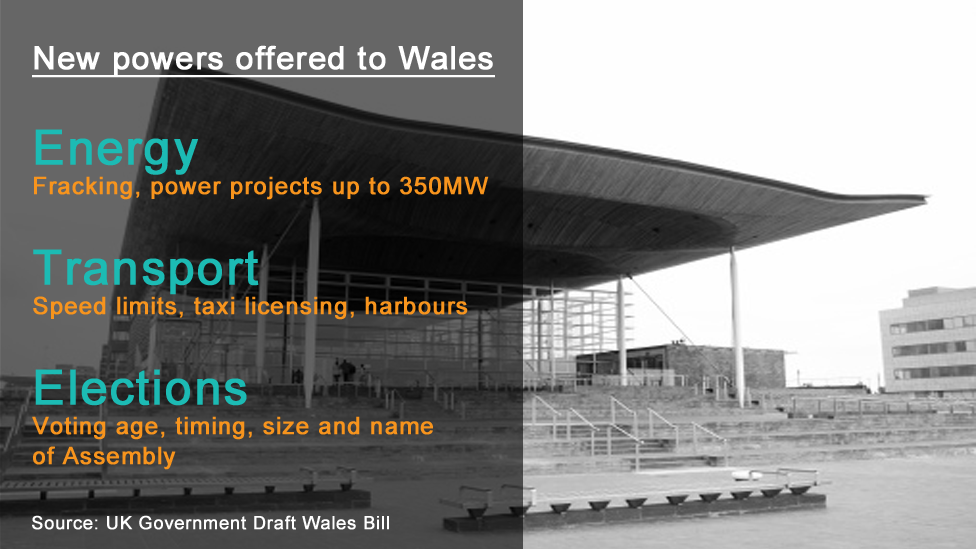
Welsh Tory leader Andrew RT Davies told the MPs: "More AMs most probably could do better scrutiny.
"I don't think there's an argument out there yet that has settled on a number."
He added that the way the Wales Bill was drafted meant there would be no extra funding to pay for more AMs, so the assembly would have to pick up the cost.
When asked about the assembly's workload, Plaid Cymru leader Leanne Wood said that "somewhere between 80 and 100 for the place to work properly", but added that it should cost no more.
Welsh Lib Dem leader Kirsty Williams said: "Any increase would lead to a decrease in the number of MPs.
"There is no appetite to spend more money on politicians."
Legal experts and academics have also been giving evidence.
The UK government has rejected claims by Mr Jones and other AMs that a new "reserved powers" model - which names the responsibilities remaining at Westminster - will weaken the assembly's current powers.
Sir Paul Silk, who published two reports on Welsh devolution for the UK government, warned against rushing into fresh legislation.
He told the Welsh Affairs committee he recommended "doing it in a more considered way and doing it right".

Analysis by Nick Servini, BBC Wales political editor
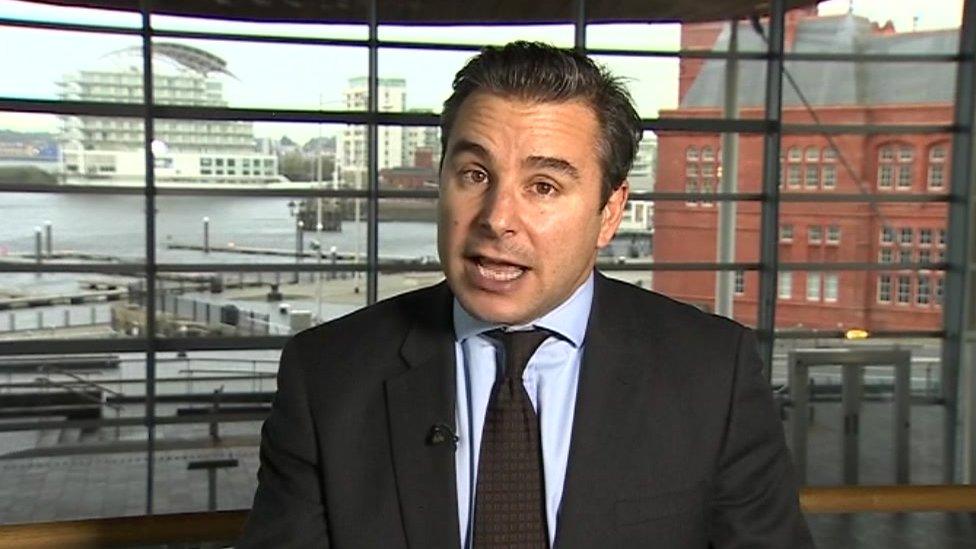
The debate about the number of assembly members in future has largely been absent so far in the discussions about the proposals included in the draft Wales bill.
Since the publication last month, the debate has been dominated by political attacks between the Wales Office and politicians in Cardiff Bay, who broadly feel the measures would mean too much power is retained at Westminster.
Now we can expect the hard yards of level-headed analysis of what the proposals would mean for Wales.
With regard to the number of AMs, it was interesting that none of the opposition party leaders suggested retaining the existing 60.
The question is how palatable that will be with the public.
One MP told me that during the course of the general election he knocked on thousands of doors and no-one called for more politicians in that time.
There was also a rare display of unity among the opposition leaders when to varying degrees they all expressed concerns about the proposals.
- Published3 November 2015
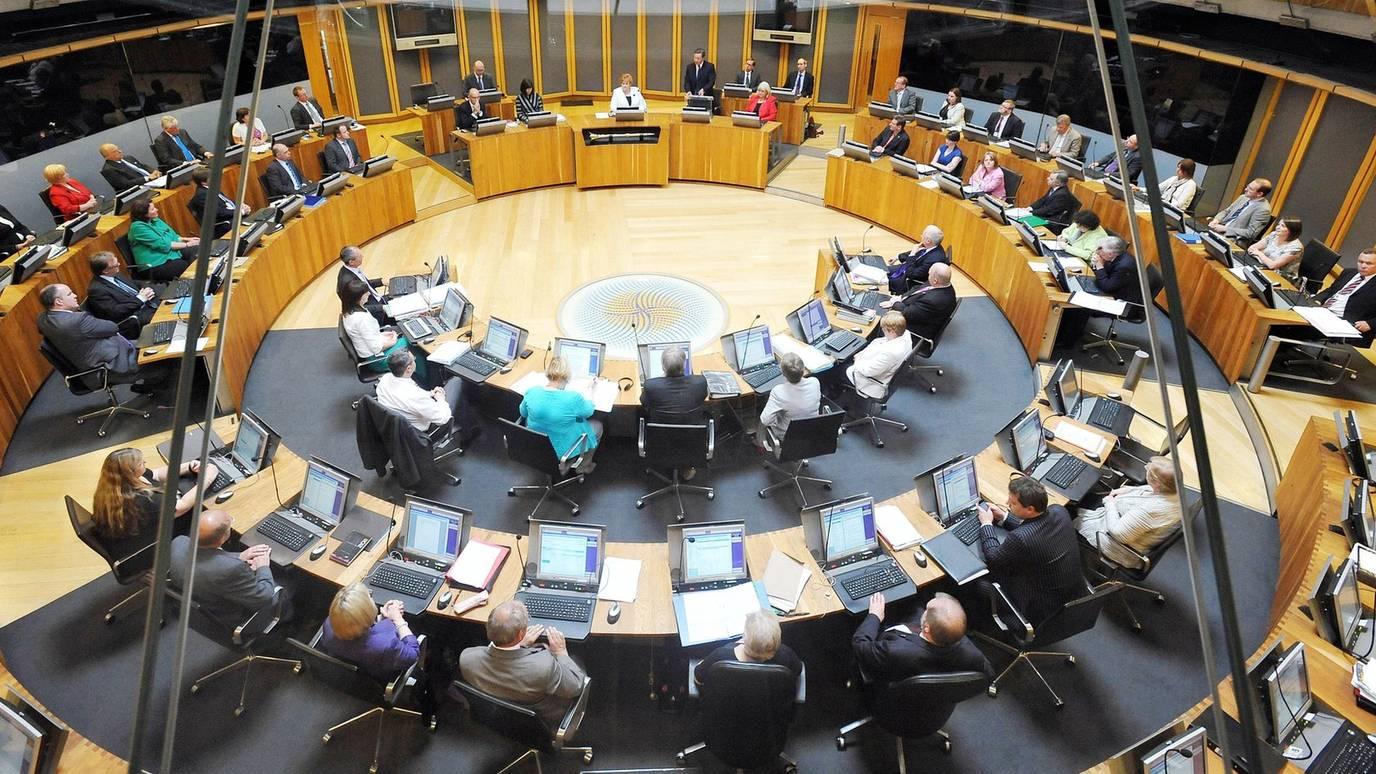
- Published29 October 2015
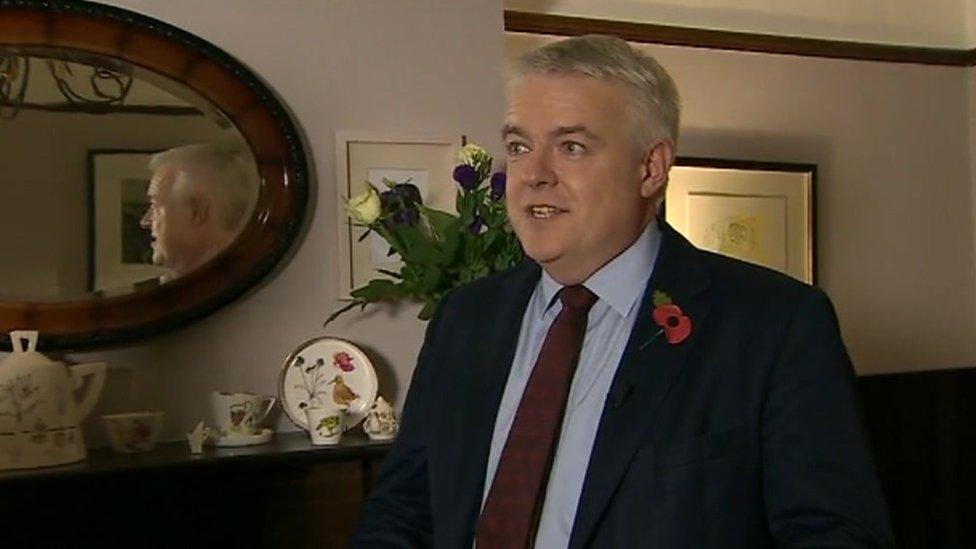
- Published29 October 2015
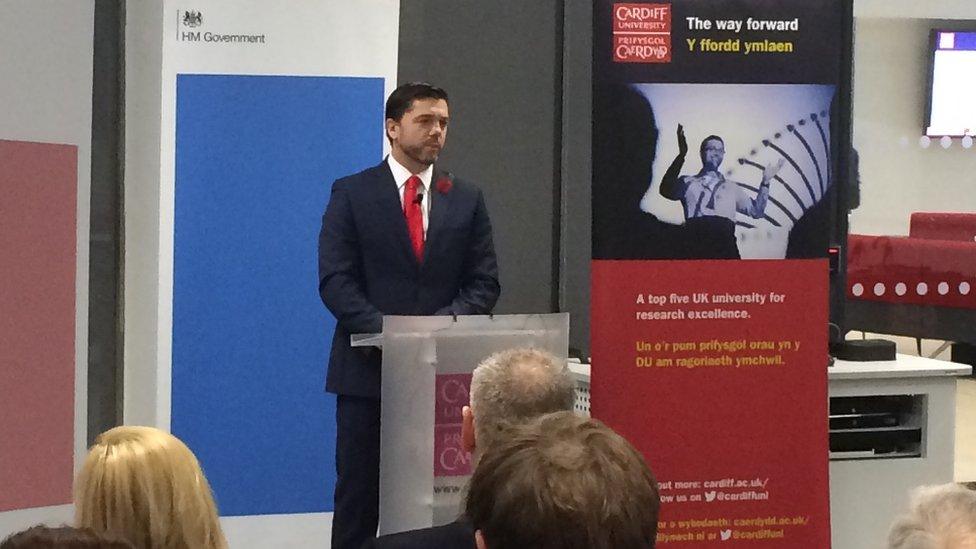
- Published27 October 2015

- Published23 October 2015
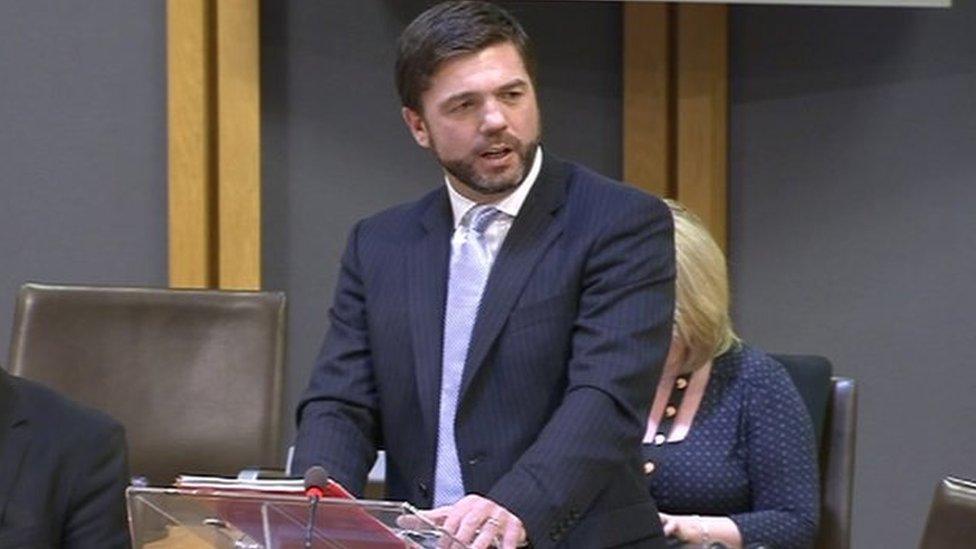
- Published20 October 2015
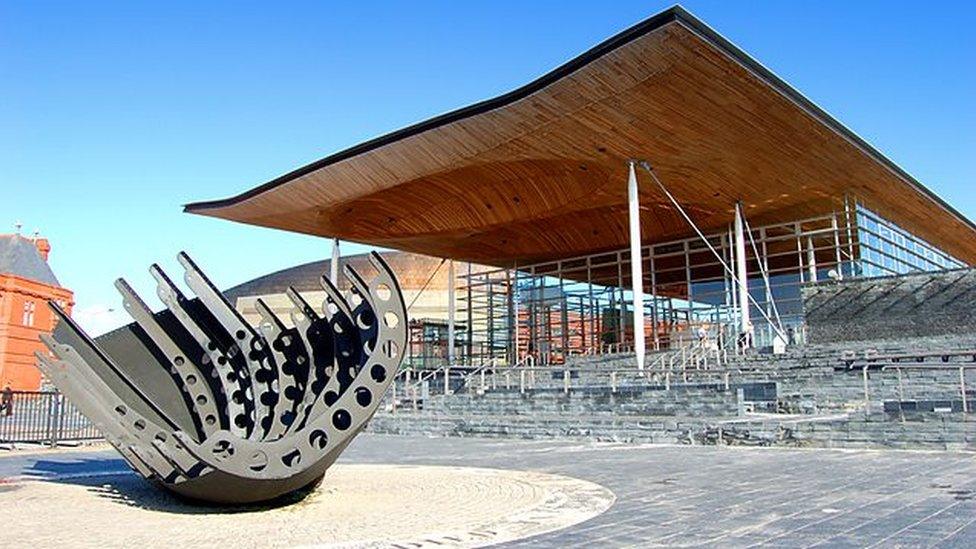
- Published18 October 2015

- Published24 June 2015
